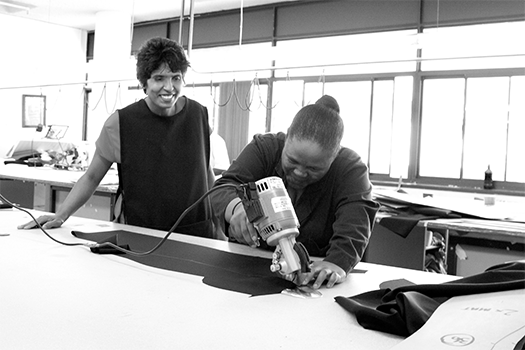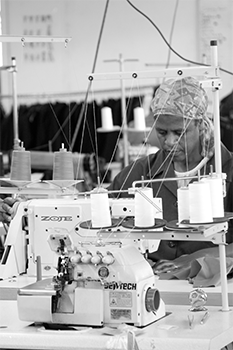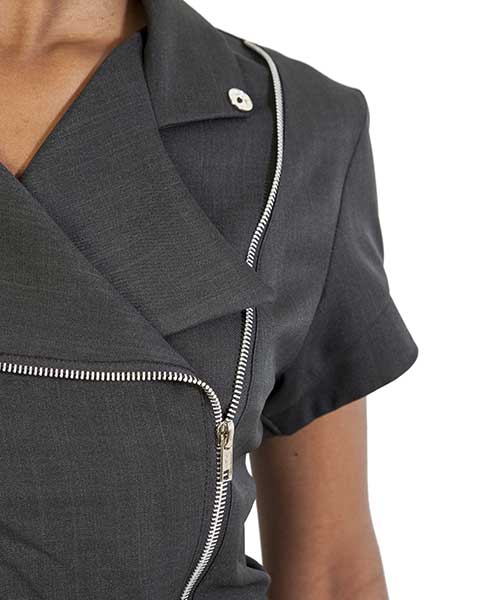Ethical fashion has been the buzzword on many people’s lips for a while now, with a lot of concern over where textiles are sourced and the working conditions of the people producing them.
The clothing industry generates more than $250 million worldwide, with fast fashion encompassing the majority of it. So with so much at stake, companies are often reluctant and disinterested to improve employee work conditions and incorporate fair labour practices.
Worldwide there has been an increase in sustainable fashion companies. Popular American sustainable fashion brands such as Everlane, SKIIM and Swedish Hasbeens pride themselves on only using ethically-sourced and locally-produced fabric. They ensure that their quality standards are extremely high so that fashion purchases are an investment rather than a commodity.
The fact that these businesses have found a market for clothes that are ethically produced proves that people care about where their clothes come from.


Investment items are particularly important in the wake of modern fast fashion outlets that source garments from countries with cheap labour like China and Bangladesh. Due to the poor quality and the fickleness of fashion trends, these items often end up in landfills, which is what sustainable fashion companies are trying to avoid.
But ethically-sourced fabric is not the only concern of this movement. The poor treatment and compensation of fast fashion factory workers have been the topic of heated debates in the media over the last couple of years; the most infamous example being the collapse of the Rana Plaza building in Bangladesh in 2013, where 1,134 workers were killed due to a structural failure. The clothing factory housed in the building produced apparel for well-known brands such as Primark, Benetton, and Mango. The incident brought international attention to this issue.
A change in the South African clothing industry
After the end of Apartheid and the establishment of democracy in South Africa, Cape Town’s long-established clothing industry was damaged due to an influx of imported goods and competition from Asia.
The increase in retailers sourcing material from local manufacturers and companies deciding to hire in-house textile workers has helped to rectify the situation somewhat. Which has lead to the revival of the clothing sector in Cape Town. Old, abandoned textile warehouses of yesteryear have been reclaimed in areas such as Salt River and Woodstock.
A huge contributor to this change is the South African Clothing and Textile Workers’ Union (SACTWU). SACTWU has a buy local policy. Not only does this create jobs in the country but is also more efficient in the long run in terms of the logistics involved. To promote the policy, the union runs shops that stock “Made in South Africa” clothing and holds the Spring Queen Pageant each year, in which garment workers model clothes they have made.
But, although major steps have been taken to revitalise the clothing sector, the local industry is still under threat from cheaper countries. While a lot of factories have reopened their doors, countless factories that have contributed to the economy and livelihood of thousands of employees have closed their doors in recent years from not being able to keep up with the price of imported clothes.



In the wake of a huge loss of jobs in the textile industry in 2017, companies such as KARMA Clothing, strive to only manufacture their clothes locally in order to help with job creation. The impact of cheap imports has dramatic consequences for the employment level in the country.
It’s important to keep local factories operational not just so that local workers keep their jobs, but also so that the country doesn’t lose its autonomy and self-sustaining know-how. Exclusively relying on other nations for imports means an entire local industry may disappear.
By ensuring that garments are produced locally, local employers can also ensure that working standards are being adhered to, as opposed to other countries where workers may be taken advantage of and exploited without second or third buyers even being aware of their circumstances.
Regardless of whether ethical fashion is the buzzword or not, companies should always strive to provide value to the customers in a way that is sustainable, and should never compromise on the lives of other people.


Did you enjoy that article?
Enter your details below for exclusive savings and collection news, as well as updates for when we release new content.